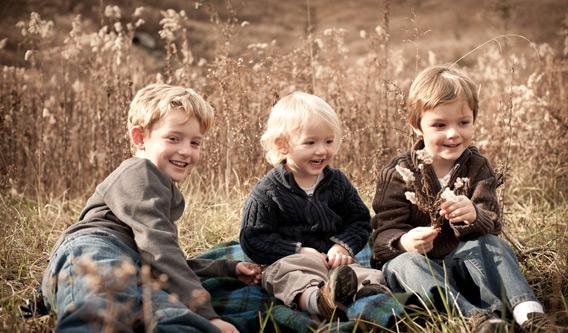Jean-Marc,
My condolences on your broken glasses and drawn-upon walls, something that we didn’t read about too much in Bringing Up Bébé. No matter what nationality you are, as a parent we’ve all spent an evening with an unruly kid like Sébastien. I like your assessment of French parents and Françoise Dolto, saying that they talk to their children like grown-ups and forget about standing their ground. That is something I see a lot of here in the States, too—parents who tell themselves they are fostering their children’s independence but who are in practice merely letting them run a little wild.
I am relieved to hear that even French children like pizza and pomme frites. It makes me feel a little better about that one night a week in which we resort to chicken fingers. But I do have to give the French credit for instilling good eating habits—and to Druckerman for showing that, while it’s not always easy, you can get your kids eating healthfully with gradually diminishing protests. America’s obesity problem is complex and without an easy solution: A recent study that showed no differences in obesity rates at schools where junk food was sold as compared to schools where nary a potato chip is found is likely only to add to our confusion, though to me it sends a message that good eating habits begin at home. If I borrow any ideas from this book (aside from an occasional “It’s me who decides” the next time my youngest tells me I “have” to do something), it’s going to be to work on our vegetables. No, I don’t expect my children to start immediately dining on bouillabaisse or boiled-beet salad, but we have room for improvement.

The Larimores: Brandon, 8; Wilson, 2; and Jameson, 5.
©Samantha Meister/SamanthaMeister.com.
I was as surprised as you that Druckerman’s portrait of parenting was so mother-heavy. We saw fathers on the periphery, and she did mention that parks on the weekend were full of “dads, adorably scruffy,” pushing strollers, but most of her sources are other mothers—and indeed, mothers with whom she socializes or knows through friends of friends. And therein lies another problem I have with the book.
I know that when you write a book on a topic as broad as parenting, you have to narrow it somehow. But Druckerman didn’t merely narrow her focus to French parenting techniques vs. American parenting techniques. She also honed in, largely, on the well-to-do parents of the age-6-and-under set: parents who are like her. It makes for an interesting read for those of us living, as I like to call it “in the weeds.” And yet, it leaves some longitudinal questions unanswered. For one, if there are such great differences between American and French parenting styles, do those styles have long-lasting effects? How do French teenagers compare with American teenagers? The French have a low marriage rate compared with Americans, so it might be hard to compare divorce rates, but does our allegedly more intensive parenting style lead to more broken families?
Another problem that I have with Druckerman honing in on early childhood is that I bet most parents—even Americans who sign up our kids for a dozen activities and then tell researchers that we’re as happy doing housework as parenting—find that child-rearing gets easier either as your child gets older or as you have more children. We’ve found ourselves getting a bit more “French” with the arrival of each subsequent child: We speak to our second and third children more like adults at younger ages, we instill a little more independence, and we are a little less paranoid.
One example: When our oldest was 2, we attended a Christmas party with new friends. I very tentatively let our son go play downstairs with the other kids, unattended. I asked a mother whose daughter was a little younger if she thought the two of them were OK. “Of course,” she said. “Why not?” No doubt her attitude stemmed from the fact that this daughter was the youngest of her three children. Now I am in her position, and I worry very little about my youngest. I wonder if the neurotic parenting that Druckerman describes on this side of the Atlantic stems from the fact that American “bobos” are getting married later and having fewer children.
As we wrap up our discussion, I’d love to hear more about the French fathers that you touched on in your first entry—if they are becoming less authoritative, are you worried that French society will be taken over by an army of little Sébastiens, wielding crayons and leaving a trail of broken glasses and spoiled evenings in their wake? If so, do mothers need to become the disciplinarians?
Thank you for sharing your experiences as a French parent; I now feel a little more sage after our discussion.
Rachael